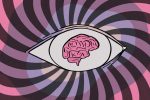In 1966, psychologist Melvin Lerner conducted experiments to understand the human tendency to blame victims for their suffering and learn why and how regimes that cause cruelty and suffering retain popular support. The findings resulted in the theory known today as the “Just World Hypothesis” in social psychology. The just-world hypothesis is a cognitive bias in which humans attempt to rationalize events in an unjust world. It corresponds to humans’ need to believe that the world is just and that people get what they deserve.
The just-world hypothesis is based on the premise that good actions result in rewards and favorable outcomes, while bad or evil actions result in punishment and unfavorable outcomes. It is similar to what is colloquially known (and widely misunderstood) in Western popular culture as “karma,” which generally explains how an individual’s executed actions affect that individual and the life that they live. Phrases such as “you reap what you sow,” “you had it coming” and “what goes around comes around”—usually used in negative contexts—are everyday statements that contribute to this bias. They imply that people get what they deserve and that every outcome has a logical explanation. Furthermore, this train of thought supports the belief or ideology that humans are ultimately responsible for their own fates.
Theories closely related to the just-world hypothesis include “the nothing to hide argument,” “the causality principle” and “the self-serving bias.” According to the “nothing to hide” argument, individuals have no reason to fear or oppose surveillance programs unless they are concerned that they will expose their own illegal activities. A character in Henry James’s 1888 novel “The Reverberator,” states, “If these people had done bad things, they ought to be ashamed of themselves, and he couldn’t pity them; and if they hadn’t done them, there was no need of making such a commotion about other people knowing.”
The theory demonstrates how people can support potentially oppressive systems and mindsets; they have no objections as long as those systems do not affect them personally. This could explain why individuals are less sympathetic to the plights of others, especially when they find themselves in predicaments that could have been prevented.
The Causality Principle states that a logical relationship exists between two events and that for every event, there is always a cause, with the cause always coming before the effect. In relation to the just-world hypothesis, it would explain the widely accepted belief that people deserve what they get. If a person leaves their car unlocked and their valuables are stolen, the general consensus would be that this event happened because they were careless. However, it is important to remember that correlation does not always equal causation and certain events cannot always be explained logically. Furthermore, the self-serving bias contends that people tend to attribute success to their own abilities and efforts while attributing failure to external factors. Hence, people struggle to accept the reality of bad things happening to them, because they do not believe they did anything to deserve or cause negative outcomes.
According to the just-world hypothesis, actions have predictable outcomes. It aids people in providing justifications for the good or bad things that occur to other people. It is one of the reasons why, when someone dies, we are eager to learn how they died and what events led to their death, as this helps us reassure ourselves that it would not happen to us. When someone is diagnosed with a chronic condition, such as cancer, we try to find reasons, such as lifestyle habits or genetics, that may have predisposed that person for that diagnosis just to convince ourselves that we won’t meet the same fate. Although some argue that this bias has both an evolutionary and an innate basis, it is possible that there is an element of societal conditioning that makes us susceptible to this fallacy. This can be seen in TV shows and books where the good guys usually win and the bad guys die. In fairytales like Cinderella, the girl gets to marry the prince because she isn’t as bad-tempered as her sisters. In these examples, good always prevails over evil, but this isn’t always the case in real life.
The just-world hypothesis exaggerates the role of personal factors in people’s actions, essentially perpetuating the idea that victims are complicit in their own suffering. This effectively ignores factors beyond their control. For instance, this logical trajectory is often utilized when discussing refugees fleeing their homes or minorities facing disadvantages as a result of decades of being subjected to oppressive systems. In the case of refugees, when there’s news of terrible things happening to them, comments like “well, if it was so dangerous, why did they leave their country then?” are all too common. They imply that the tragic ends that these people meet are in some way their fault, and could have been avoided had they simply remained in their home country (in cases like this, it is crucial to remember the poignant words of Warsan Shire, “you have to understand, that no one puts their children in a boat, unless the water is safer than the land”).
Victim blaming is a particularly heinous application of the just-world hypothesis, and it can even be done unconsciously by victims as they try to justify to themselves why something happened to them. A 1979 study by Dr. Ronnie Janoff-Bulman discovered that rape victims frequently blame their own behavior, but not their own characteristics, for their victimization. This led to the hypothesis that attributing blame for one’s own actions makes one feel like they are more in control of a situation. Furthermore, scientific studies have shown that belief in a just world predicted less positive attitudes toward rape victims, whereas empathy predicted more positive attitudes.
There are numerous examples on the internet today of people unconsciously applying this bias to their daily lives. For instance, underneath tweets or headlines stating that someone contracted COVID or experienced an unexpected health condition even after receiving the vaccine, it is not uncommon to see many people in the comment section attempting to explain how this has something to do with the vaccine that the person received at some point. Ironically, the same sentiment can also be found in cases where the person did not receive the vaccine and ended up contracting the virus. (Health authorities have stated that although these vaccines are safe, they are not 100% effective and serve to protect against the development of severe illness). It’s almost as if people want to believe that actions (or inactions) must have logical consequences, no matter how cruel or unjust they are.
The ongoing debate over student loan forgiveness in the United States is another excellent example. When news broke that loans might be forgiven, there was outrage about how unfair it was because if some people had worked their entire lives to pay off these loans without complaining, there was no reason why other people should have it easy and have their loans forgiven. According to them, in a just world, everyone would be forced to repay their student loans with no exceptions. But it’s worth pointing out that in a just world, individuals would not be subjected to exploitative systems in which they must take out excessive loans to gain access to quality education.
This example is consistent with Lerner’s inquiry into how people come to accept social norms and laws that cause misery and suffering. It contributes to the perpetuation of injustice, and could explain why people tend to dismiss the poor or complain about how they receive government benefits, even when they are aware of the structural forces that contribute to these situations. In a 2015 article, George West explains that, “Just World is an important part of the ruling class’s propaganda…What better way to quell dissent than to instill fear in the oppressed?”
From a religious standpoint, the just-world hypothesis can also be viewed as a type of coping mechanism, as it helps people rationalize what happens to them and deal with the trials and tribulations that life throws at them. Religion guarantees posthumous justice in the afterlife, in which the scales of justice are balanced. One of the benefits of this hypothesis is that it could serve as a form of motivation. For example, if a hard worker receives top grades in school, a good job upon graduation, and eventually goes on to live a successful life, the general consensus would be that the person worked hard for it and as a result, deserved the favorable outcome they received in the end. This can inspire others because they believe that if they follow in your footsteps, they will achieve the same result. But this isn’t always the case, as it’s possible to be a good person, do everything completely right and still not achieve the desired outcome.
Because the world is inherently unjust and unfair, it makes sense that humans try to rationalize this by devising reasons that help us to make sense of it. Although this is an unconscious bias that we frequently fall into, recognizing and acknowledging it allows us to be more proactive in fighting injustice, rather than simply hoping that everything will somehow work out in the end. Good things can happen to bad people and bad things can happen to good people. It doesn’t necessarily always follow that either group had it coming. Sometimes things just happen without any logical explanation.

















